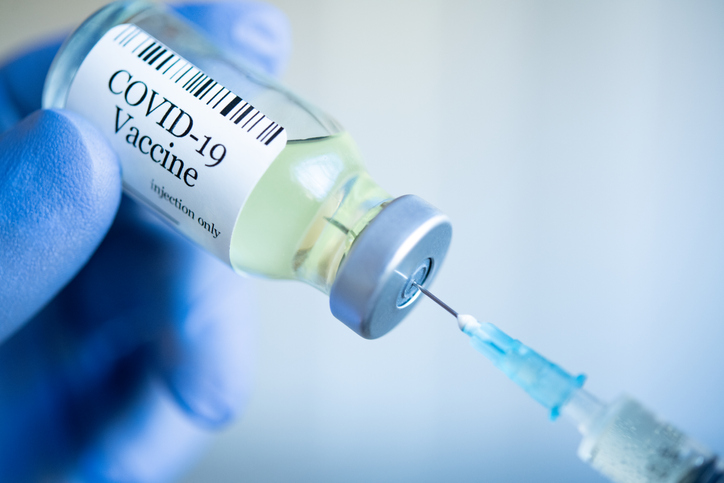As the COVID-19 pandemic continues to persist worldwide, few defenses to stop its spread have been as urgently awaited as a vaccine. Following the emergency use authorization issued Dec. 11 by the U.S. Food and Drug Administration for Pfizer’s COVID-19 vaccine, a different vaccine made by drug company Moderna was cleared Dec. 20 for emergency use in the U.S. The approvals set the stage for the biggest immunization program in the nation’s history.
Similar to the vaccine made by Pfizer, Moderna’s COVID-19 vaccine will be first available to high-risk groups such as healthcare and other essential workers across the state. An initial supply arrived before New Year’s Day in Northern California.
The FDA endorsed immunization with Moderna’s vaccine for use in people age 18 and older, based on Phase 3 clinical trial data that found the vaccine to be 94 percent effective with largely mild side effects. The Pfizer vaccine was approved for emergency use in people age 16 and older, and was also studied in large, Phase 3 clinical trials that showed the vaccine to be safe and effective.

Lisa Gammon, R.N. at Sutter’s Novato Community Hospital in the Bay Area, prepares to give the Pfizer COVID-19 vaccination to high-risk healthcare workers on Dec. 17, 2020.
Several other drug companies are also completing large, Phase 3 clinical trials testing COVID-19 vaccines.
Since initial supplies of the first two, approved vaccines may be limited, hospital systems including Sutter Health in Northern California are developing plans for allocation, storage and distribution. Those plans will be created in accordance with guidelines from the FDA, Centers for Disease Control and Prevention and state agencies, with recommendations on how to prioritize immunization of front-line healthcare workers and high-risk individuals until supplies increase.
Learn more about vaccine emergency use authorization and other phases of testing and review by the FDA.
How many doses of the COVID-19 vaccine will be available?
A vaccine advisory committee for the CDC estimated that 40 million doses of the Pfizer vaccine may be available by the end of December, or enough to vaccinate 20 million people. The committee also anticipates that an additional five million to 10 million doses will be available each week after the initial allotment, as manufacturers scale up production.
An initial shipment of approximately six million doses of the Moderna COVID-19 vaccine may be allocated across the nation next week.
When can the general public expect to be offered the vaccine?
Vaccine distribution will most likely occur in phases. The timeline for distribution to the general public is not yet clear and depends on vaccine supply and the guidance of public health officials.
Do the COVID-19 vaccines have any side effects?
Scientists anticipate that most recipients will experience side effects such as mild to moderate flu-like symptoms — including fatigue, muscle aches and fever – and should usually resolve in a day or two. These side effects are thought to be due to your immune system responding to the vaccine.
How many doses of a COVID-19 vaccine are needed?
The vaccines made by Pfizer and Moderna both require two doses: an initial vaccination, and then a second shot either three or four weeks later, respectively. Current data from studies of vaccine candidates show that while the first dose stimulates an immune response, the second dose stimulates an even greater one, offering the recipient far more protection from COVID-19.
Will we still need to wear masks and practice physical distancing?
Masking and physical distancing will continue to be critical tools in preventing transmission until a large percentage of the population is vaccinated and we are sure the vaccine provides long-term protection.
Is there a waiting list or priority list I can sign up?
As of this time, Sutter Health is not keeping a waiting list for vaccines. The COVID-19 vaccine will be allocated according to the guidance from the CDC and California Department of Public Health based on available supply.
Discover the science of COVID-19 vaccines and how they help protect against infection.





